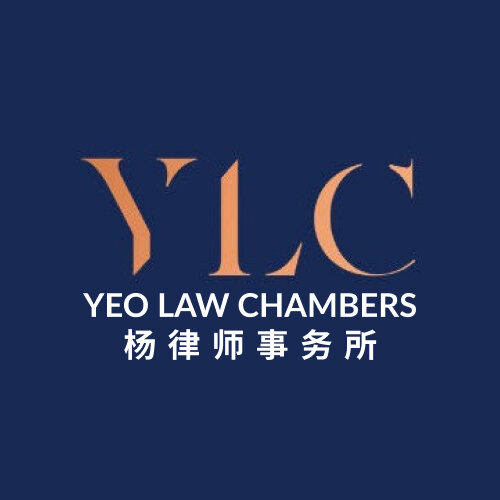Best Environmental Law & Compliance Lawyers in Johor Bahru
Share your needs with us, get contacted by law firms.
Free. Takes 2 min.
List of the best lawyers in Johor Bahru, Malaysia
About Environment Law in Johor Bahru, Malaysia
Environmental law in Johor Bahru, Malaysia, is a crucial component of ensuring sustainable development and protecting the rich biodiversity and natural resources of the region. As a rapidly developing city and a key economic hub, Johor Bahru faces challenges related to pollution, deforestation, and waste management. Environmental laws in Malaysia aim to regulate human activities that impact the environment negatively, ensuring that economic progress does not come at the cost of ecological and public health.
Why You May Need a Lawyer
There are numerous situations in which individuals or businesses might need legal representation regarding environmental issues in Johor Bahru. Common scenarios include:
- Compliance with environmental regulations for new developments or business operations.
- Addressing pollution control and waste disposal issues that affect community health.
- Handling legal disputes related to land use and natural resource management.
- Obtaining environmental permits for construction or industrial projects.
- Defending against enforcement actions or penalties imposed by regulatory authorities.
A lawyer specializing in environmental law can provide crucial support in navigating these challenges, ensuring that actions comply with local and national laws.
Local Laws Overview
Environmental regulations in Johor Bahru are primarily governed by national legislation, particularly the Environmental Quality Act 1974, which empowers the Department of Environment (DOE) Malaysia to enforce regulations. Key aspects include:
- Environmental Impact Assessment (EIA): Certain projects require an EIA to assess potential environmental effects before proceeding.
- Air and Water Quality Regulations: Standards are set to control emissions and discharge from industrial and agricultural activities.
- Waste Management: Regulations address proper waste disposal and encourage recycling and sustainable practices.
- Conservation of Natural Resources: Laws aim to preserve forest reserves, wildlife, and marine parks.
Understanding these laws is essential for anyone involved in activities that may impact the environment in Johor Bahru.
Frequently Asked Questions
What is an Environmental Impact Assessment (EIA) and when is it required?
An EIA is a process used to evaluate the environmental effects of a proposed project. It is required for projects that are likely to have significant environmental impacts, such as large-scale construction, industrial developments, or resource extraction activities.
Who enforces environmental laws in Johor Bahru?
The Department of Environment (DOE) Malaysia is the primary body responsible for enforcing environmental laws in Johor Bahru, overseeing compliance, and taking action against violations.
What happens if a business fails to comply with environmental laws?
Non-compliance can result in legal actions, including fines, suspension of operations, or additional remedial measures mandated by authorities.
How can individuals report environmental violations?
Individuals can report environmental violations to the DOE through official channels, including hotlines and online reports. Public vigilance helps in enforcing and upholding environmental standards.
Are there any incentives for businesses to adopt environmentally friendly practices?
Yes, the Malaysian government offers various incentives, such as tax breaks and grants, to encourage businesses to implement sustainable practices and technologies.
Is public participation allowed in environmental decision-making processes?
Yes, public participation is encouraged, especially during Environmental Impact Assessment (EIA) processes, to ensure transparency and community engagement in projects that affect the environment.
Can environmental laws affect property development projects?
Yes, compliance with environmental laws is crucial for property development. Projects must adhere to requirements related to land use, resource management, and impact assessments.
What are the penalties for pollution offenses?
Penalties vary depending on the offense's severity and can include fines, imprisonment, or both, based on the provisions outlined in the Environmental Quality Act 1974.
How can I ensure my business complies with environmental regulations?
Engaging an environmental law expert to conduct audits and provide guidance on regulatory compliance can significantly help in aligning business operations with current environmental laws.
Are there specific laws regulating the use of plastic in Johor Bahru?
While specific regulations may vary, there is a nationwide push towards reducing plastic use, including bans on plastic bags and straws, to mitigate pollution and environmental impacts.
Additional Resources
For further assistance, consider the following resources:
- Department of Environment (DOE) Malaysia: The main regulatory body for environmental issues.
- Ministry of Energy and Natural Resources: Oversees policies related to energy, resources, and environmental conservation.
- Environmental NGOs: Organizations like WWF-Malaysia and the Malaysian Nature Society provide support and advocacy on environmental matters.
Next Steps
If you require legal assistance regarding environmental issues in Johor Bahru, these are some steps to consider:
- Identify the specific legal issue or compliance requirement you are facing.
- Compile relevant documents, such as notices from regulatory bodies, EIA reports, and project plans.
- Seek consultation with a legal expert specializing in environmental law to discuss your situation.
- Consider reaching out to professional bodies or associations for recommendations on qualified lawyers.
- Ensure any legal advice or representation sought is tailored to the local laws and regulatory environment in Johor Bahru.
Lawzana helps you find the best lawyers and law firms in Johor Bahru through a curated and pre-screened list of qualified legal professionals. Our platform offers rankings and detailed profiles of attorneys and law firms, allowing you to compare based on practice areas, including Environmental Law & Compliance, experience, and client feedback.
Each profile includes a description of the firm's areas of practice, client reviews, team members and partners, year of establishment, spoken languages, office locations, contact information, social media presence, and any published articles or resources. Most firms on our platform speak English and are experienced in both local and international legal matters.
Get a quote from top-rated law firms in Johor Bahru, Malaysia — quickly, securely, and without unnecessary hassle.
Disclaimer:
The information provided on this page is for general informational purposes only and does not constitute legal advice. While we strive to ensure the accuracy and relevance of the content, legal information may change over time, and interpretations of the law can vary. You should always consult with a qualified legal professional for advice specific to your situation.
We disclaim all liability for actions taken or not taken based on the content of this page. If you believe any information is incorrect or outdated, please contact us, and we will review and update it where appropriate.










